Proper Use and Care of Your Refrigerator
Get the most out of your fridge!
Refrigerators are arguably the most important appliance in our homes - they keep our food cool or frozen, some dispense water and ice whenever we need it, and most importantly they preserve our food so it doesn’t spoil as quickly. Refrigerators play such a critical role in our lives, and as such, they should be treated with the respect they deserve and get the proper TLC when needed.
Refrigerators come in various sizes and styles, but most commonly come in one of the following types:
- French door: Two French doors allow for a wide opening and a smaller freezer portion below them.
- Side by side: Two doors, side by side, that open to a freezer section on one side, and the refrigerator on the other.
- Top freezer: Freezer is located on top, with a fridge portion below it, each with its own doors.
- Bottom freezer: Freezer portion below, with the fridge section above it, and each with its own doors.
Within every refrigerator is a series of hard-working parts that keep your food cool, and these are some of the most important components:
- Compressor: This is arguably the most important part of a fridge, mainly because it circulates the refrigerant throughout the system. Without it, there’s no gas to cool off through the condenser coils.
- Condenser: This is a set of coils that takes all of the refrigerant and allows it to lose its heat, which then turns it into liquid.
- Evaporator: This is another set of coils, typically located within the fridge or freezer, that pushes the heat from the interior of the refrigerator with a fan and evaporates it.
- Thermostat: A temperature-sensitive device used to communicate the temperature within the fridge to the control board so the compressor can be turned on/off depending on what the desired temperature of the user is.
How to Use Your Refrigerator
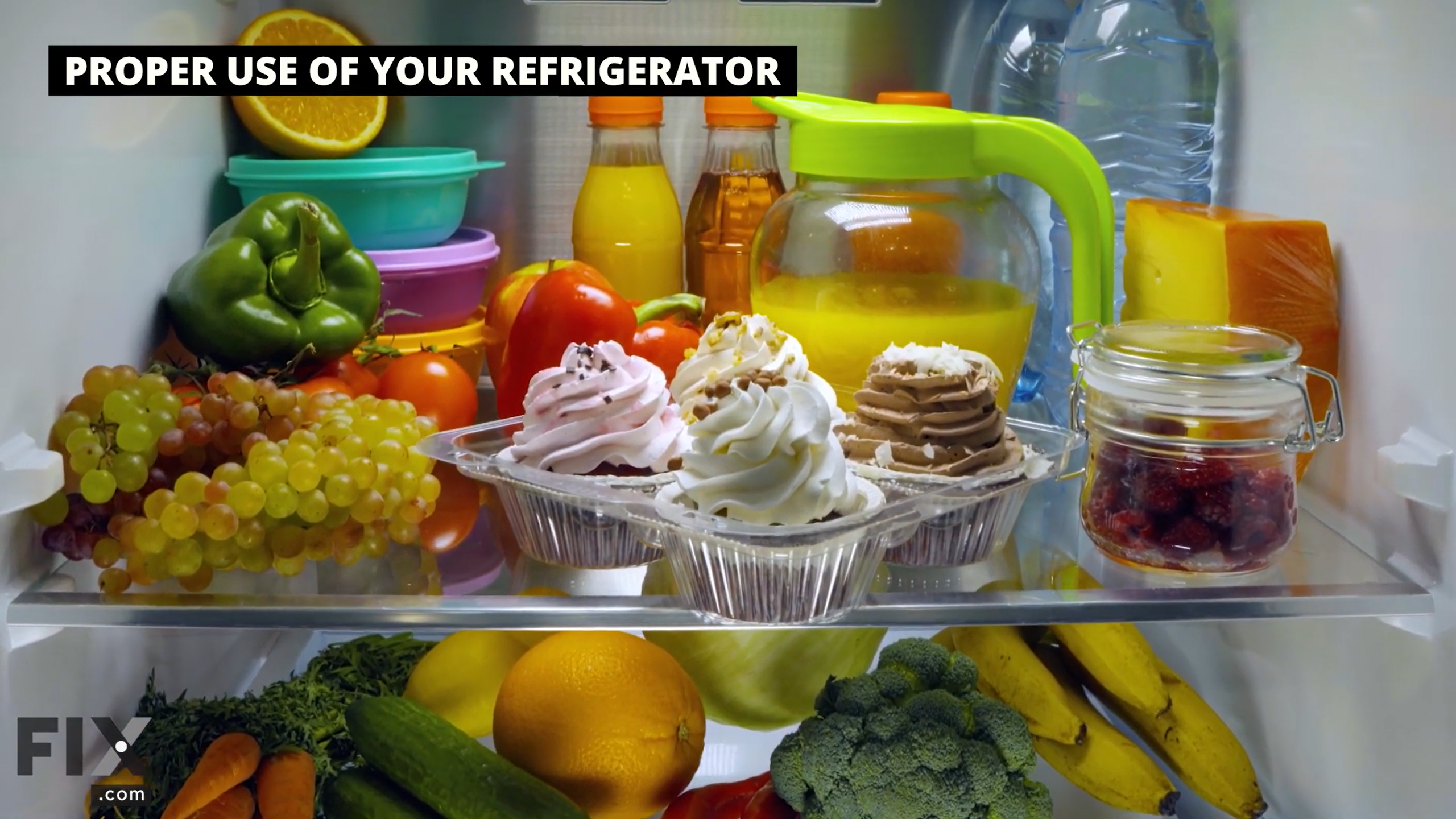
What is a Fridge Used For?
Well, aside from generally being a place to store food like milk, cheese, fruits, vegetables, meats, and condiments, it’s used to keep anything inside of it to a certain temperature and by extension, preserve those food items for even longer.
And with preservation also comes freezing, since most fridges have built-in freezers, for ice-cream, fruits, bread and oven-ready meals. More importantly, fridges and freezers play a huge role in food safety, particularly by reducing the risk of bacterial contamination by keeping food at such safe temperatures.
What is the Normal Lifespan of a Fridge?
The longevity of your fridge generally depends on the make, model, and variety of fridge that you have. This is because of the different levels of quality, maintenance requirements, and environmental factors like power consumption that a fridge has. But generally, you can expect a solid 10-15 years from your fridge, depending on your power usage and whether you maintain it by cleaning and repairing it whenever it is necessary.
Why is My Fridge Freezing Things?
Although fridges are used to cool and preserve things, freezing is usually left up to the freezer compartments. If you notice frost buildup or things within your fridge freezing, it could be a sign of a part malfunctioning, like the thermostat or defrost board. But it could also be something as simple as the door seal being damaged and allowing air to escape, or the temperature setting being far too low. In any of these events, inspect your fridge for any issues and if you need any parts, we have you covered with a huge selection of whatever parts you may need.
How to Maintain Your Refrigerator
Many people don't consider fridge maintenance, probably because so many of us use our refrigerators every day unconsciously, and never consider when or how it needs maintenance or service, before it’s too late. Luckily, we’re here to help you with that exact thing, maintaining your fridge!
Keep the Temperature Consistent
By keeping your fridge consistently between 35 and 40F, you can not only store and preserve your meats, dairy, fruits, and vegetables safely, but you also don’t consume too much power from storing your foods too cold and running the risk of them freezing unnecessarily. The best way to monitor this is to have a thermometer visible within your fridge, just so you can always make sure it’s running at the right temperature, and know when it’s not.
Check Your Water Filter
This only applies to fridges with water and ice dispensers on them, but replacing the water filter in your fridge every 6-12 months, depending on your usage, will not only keep your fridge operating well, but your body, too! Not only does a water filter that needs to be replaced make the water taste and/or smell bad, but if it's expired and not replaced for a while, it can lead to waterborne illnesses for you and your family like diarrhea, vomiting, and stomach cramps.
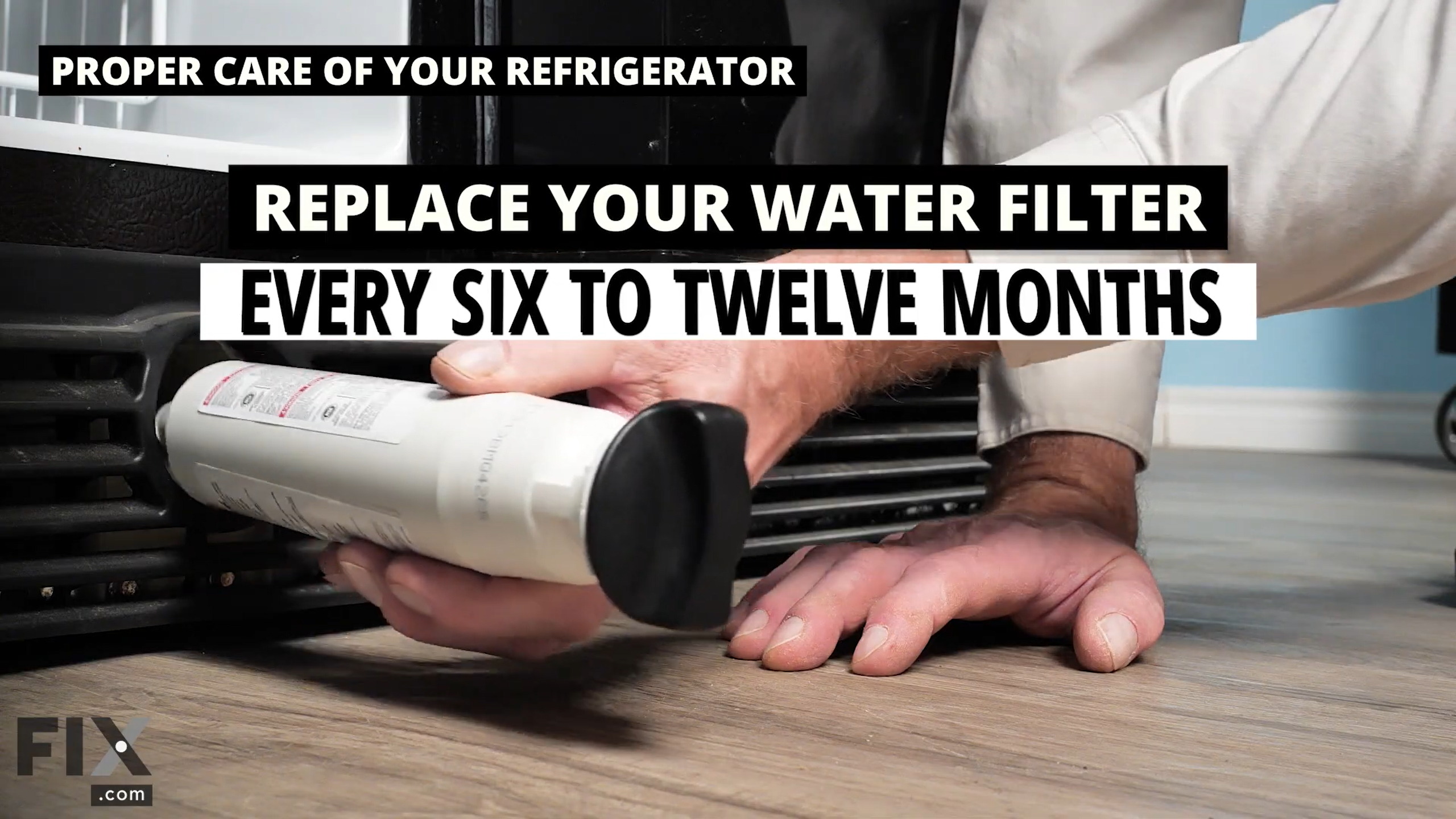
Check Door Seals
One of the more overlooked aspects of your fridge are the seals, which make sure the hotter and more ambient temperatures of your home stay separated from the cooler and more controlled temperatures of the fridge’s interior. It’s a good rule of thumb to check these seals at least once a year, if not more. If a door seal is splitting, broken, or damaged in any way, it can lead to your fridge working harder to keep the interior as cool as it needs to be and will cost you more money in the long run. But if you find your door seals are simply not getting the job done anymore and need replacing, check out our wide-range of seals and gaskets to get that fridge cooled down ASAP!
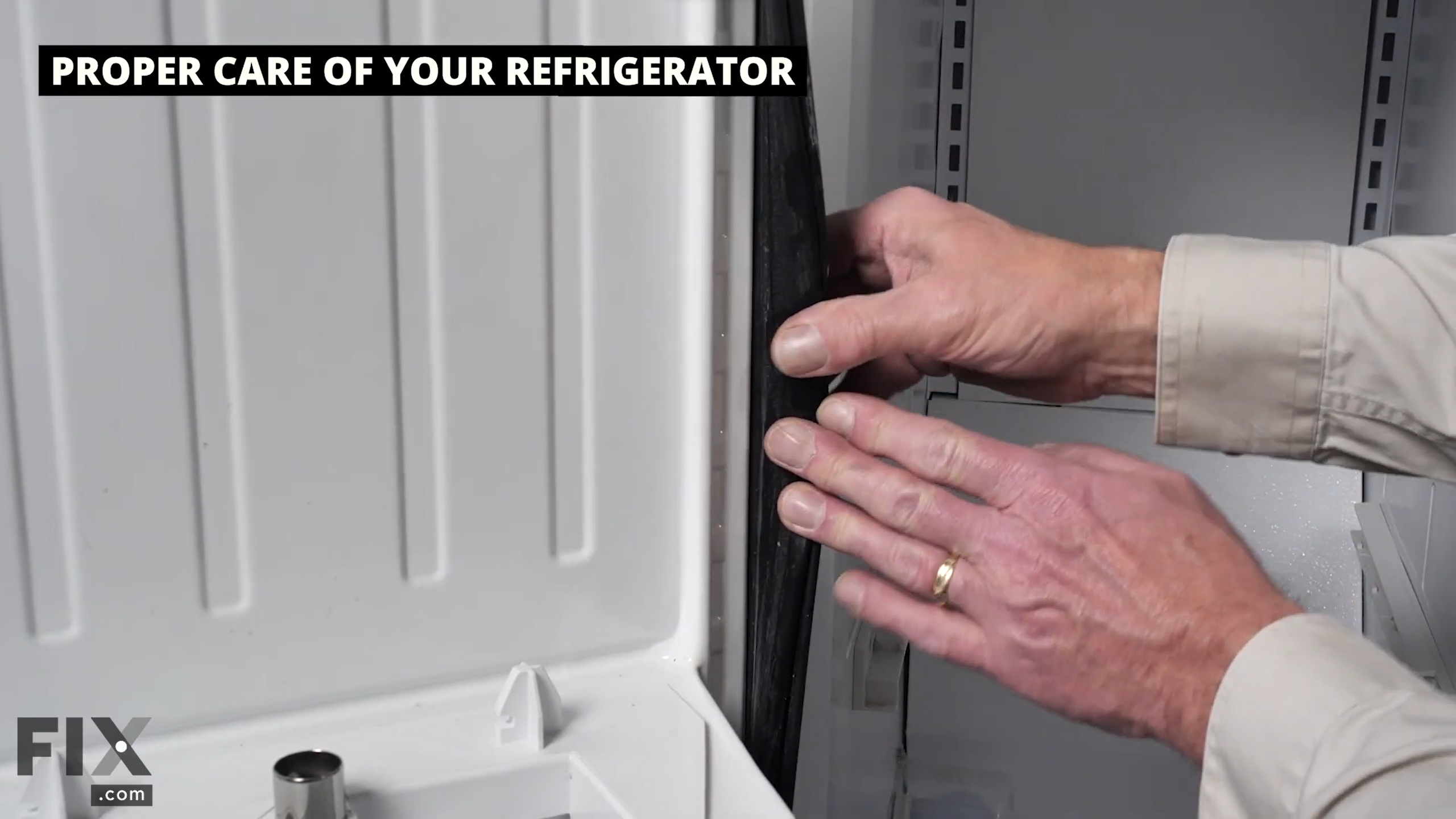
Clean Your Fridge
Keeping the interior of your fridge not only clean, but organized, goes a long way not just for you as the user and consumer of those amazing foods - but also mitigates food contamination from things like salmonella, listeria, and E. coli. Wiping the interior of your fridge down once a week with a wet towel to get rid of dirt, mold, or other food particles goes a long way for your health and your food.
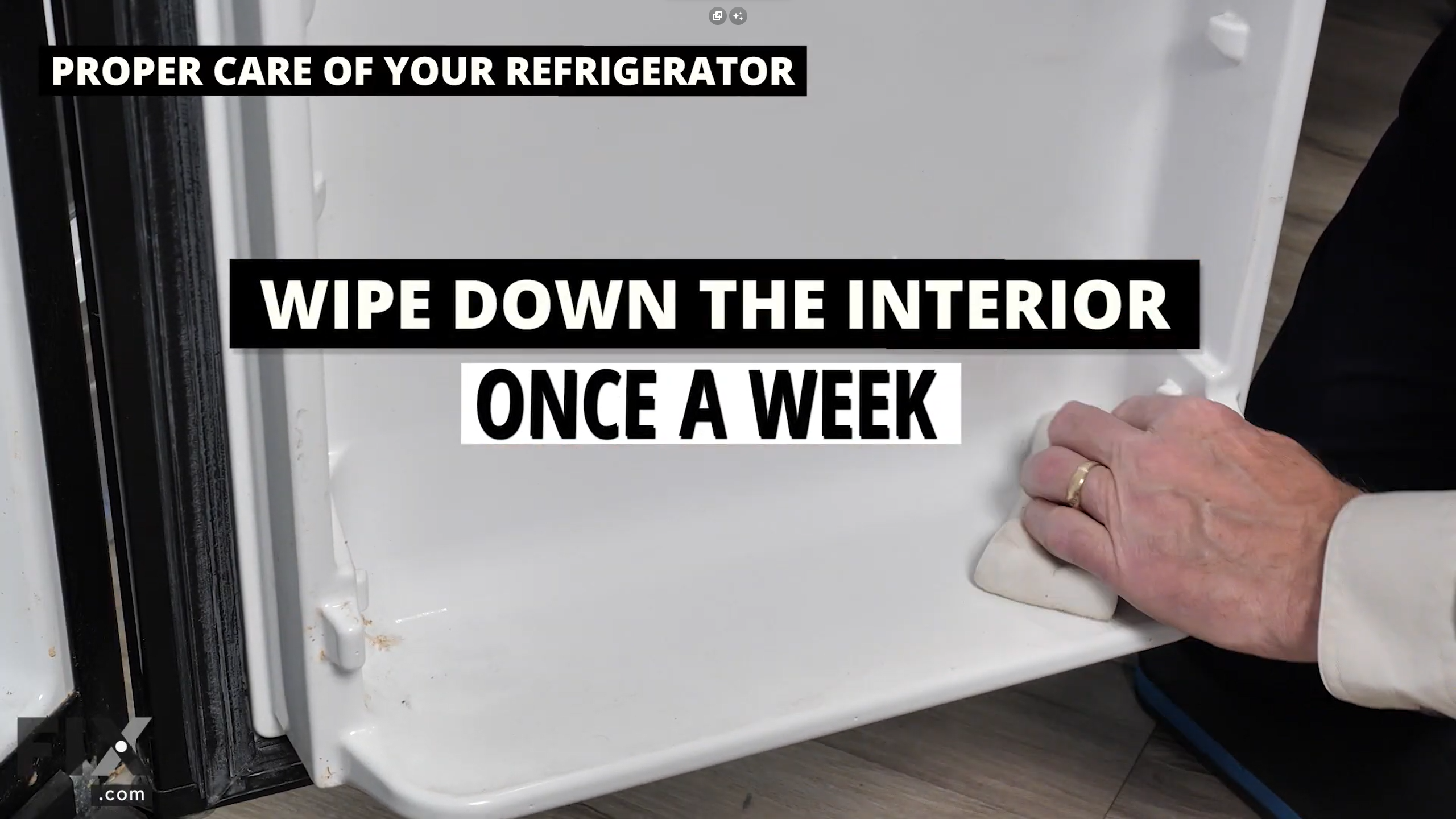
Deep cleaning your fridge once every 3-4 months is a huge help, because you clean the more hard-to-reach areas of your fridge that don’t normally get the same visibility or love that the interior would. A deep clean should involve the interior of your fridge, as well as the exterior, including the gaskets (or seals) on the inside of the doors, and perhaps more importantly, the condenser coils. These coils, as mentioned above, help to dissipate any heat inside of the fridge, and without them, your food would get warm, spoil, and allow for bacteria to spread - and no one wants that! Cleaning them thoroughly with a vacuum and duster helps them to work easier and costs you less time and energy in the long run!
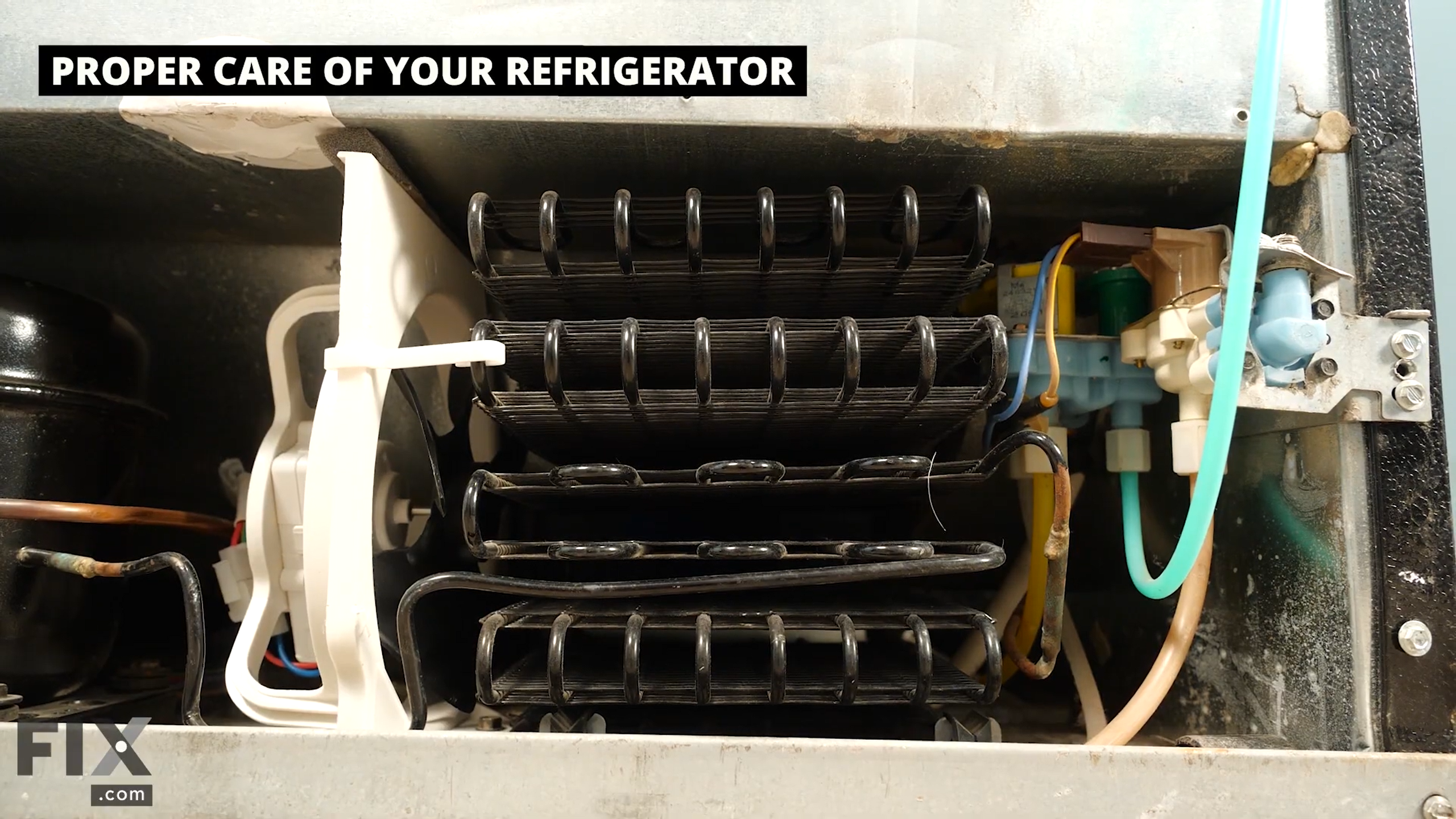
How Long Should My Fridge Be On?
Your fridge is designed to be on continuously, working hard to preserve your food and make sure it stays at the same temperature at all times, for whenever you may need it. The various components within the fridge appliance turn on and off depending on what the environment it’s in is like, but the main power supply of the appliance is always on. But if you are concerned about its power consumption, make sure it seals shut, and avoid placing hot foods/drinks within the fridge, because doing so can cause the compressor and condenser to work harder to maintain the internal temperature. It's best to allow them to cool down to an ambient temperature first, before putting them inside your fridge.
Best Fridge Maintenance Tips?
A short and simple way of maintaining your fridge is to do the following:
- Keep it clean, both inside and outside.
- Check the door seals and replace them as need be.
- Make sure the internal temperature is just right to avoid freezing your food or wasting it.
And just like that, you are a refrigerator expert. From what to do when you notice frost buildup, to being able to properly clean and maintain your fridge, these tips should hold you in good stead! Knowing more about the appliances you use on a daily basis will not only help you when issues arise in the future, but it also helps you in being able to fix your fridge so you can get it back to keeping your food cool. And for more tips and advice on how to keep your home and appliances in tip-top shape, head over to our full list of home improvement guides!
